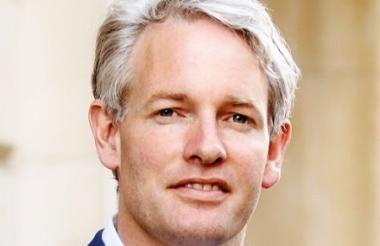Charities should be given new powers to design and deliver a broad range of public services, according a report into the future of civil society.
The paper, Levelling Up Our Communities: Proposals for a New Social Covenant, was published today. Recommendations include reforms to make it easier to register new charities and the creation of a £500m Community Recovery Fund to support the sector as society recovers from the coronavirus crisis.
The report was commissioned by the prime minister in June and prepared by the Conservative MP Danny Kruger, who was previously an adviser on charity strategy at the Department for Digital, Culture, Media and Sport.
Risk of losing 'essential' charities
The report warns that some charities will go out of business as a result of the financial damage caused by the pandemic.
It says: “No charity or social enterprise has a right to survival, and there may be a salutary shake-out as the sector adjusts to the challenges and opportunities of the new era.
“Nevertheless, we risk losing some brilliant and essential organisations if we do not act deliberately and quickly to create a support structure for local communities.”
A new deal
Kruger proposes what he calls “a new social covenant” between all parts of civil society, including the government, local councils, charities and business.
The paper says that the covenant would involve four commitments by different parts of civil society: a greater focus on social value in government commissioning and financial decisions; the devolution of decisions away from Whitehall and to “people as close to the ground as possible”; the setting of higher standards of accountability and transparency for charities and foundations; and a stronger social infrastructure.
It makes a series of recommendations to government, the regulator, foundations and charities.
Recommendations to government
- A new Community Power Act, which would give charities and other groups a right to request a role designing and delivering public services. This could be used in healthcare, social care, refugee resettlement and many other policy areas.
- Reform commissioning so that public spending delivers “value for society, not just value for money for one particular budget”.
- Negotiate with large tech firms like Amazon and Apple for assistance with strengthening social infrastructure provided by the likes of libraries and community hubs.
- Establish a volunteer passport system, which would let individuals move between volunteering roles and would encourage work in local communities and with health charities.
- Work with the Office for National Statistics and charity experts to agree ways of measuring civil society activity and value.
- Remove national and local barriers to working with faith charities.
- Review the role of the National Lottery Community Fund.
Recommendations to the Charity Commission
- Create a new "probation" status for new charities, so that organisations can set up quickly after passing "basic probity tests", with a fuller review two years after that.
-
Continue support for charities which wish to merge or work at greater scale.
Recommendations to charities and foundations
- Publish “coherent and comparable data on their activities and outcomes”, if they receive public funds or tax reliefs.
- Partner with government and academics to design a campaign attracting more philanthropic giving by the “world’s super-rich” living in the UK. This could be funded in part through match-funding from the international development budget.
How to pay for the reforms
- Create a £500m Community Recovery Fund, using money allocated from the dormant National Fund. This would support charities as they move from the emergency coronavirus response to helping communities recover from its impact.
- Create a Levelling-Up Communities Fund, using some of the £2bn available from dormant assets, which would allow “perpetual investment” in community-led projects in the UK’s most deprived areas.
'Looking forward to delivering'
The Department of Digital, Culture, Media and Sport did not respond to a request for comment on Kruger's report.
However, Baroness Barran, minister for civil society, tweeted her support for the reports overall themes, saying she was "looking forward to helping deliver on your ideas":
Very much looking forward to helping deliver on your ideas @danny__kruger https://t.co/dYEhYrMXdU
— Diana Barran (@dianabarran) September 24, 2020
In a letter posted with the report on Kruger's website, Boris Johnson, prime minister thanked Kruger for the report and committed to improvements to public procurement.
He said: "As you say, we have seen tremendous levels of voluntary action by private citizens, and of innovation and partnership between the public, private and social sectors. These are critical elements of the social model we want to see for the recovery, and into the future.
"I am pleased to announce that on ‘public value commissioning’, we are today launching a new framework for public procurement by central government. Drawing on the best models of local procurement, this framework will level the playing field for small business and social enterprises so they can win more contracts from government."
He also said that minister for civil society would consult more widely on ways to encourage volunteering.
Johnson added: "Your comprehensive and hugely ambitious report contains many exciting ideas, which are actively being considered by DCMS, and I have asked secretary of state Oliver Dowden, who is responsible for the government’s civil society agenda, to update you on the government’s work in this area in due course."
Related articles












